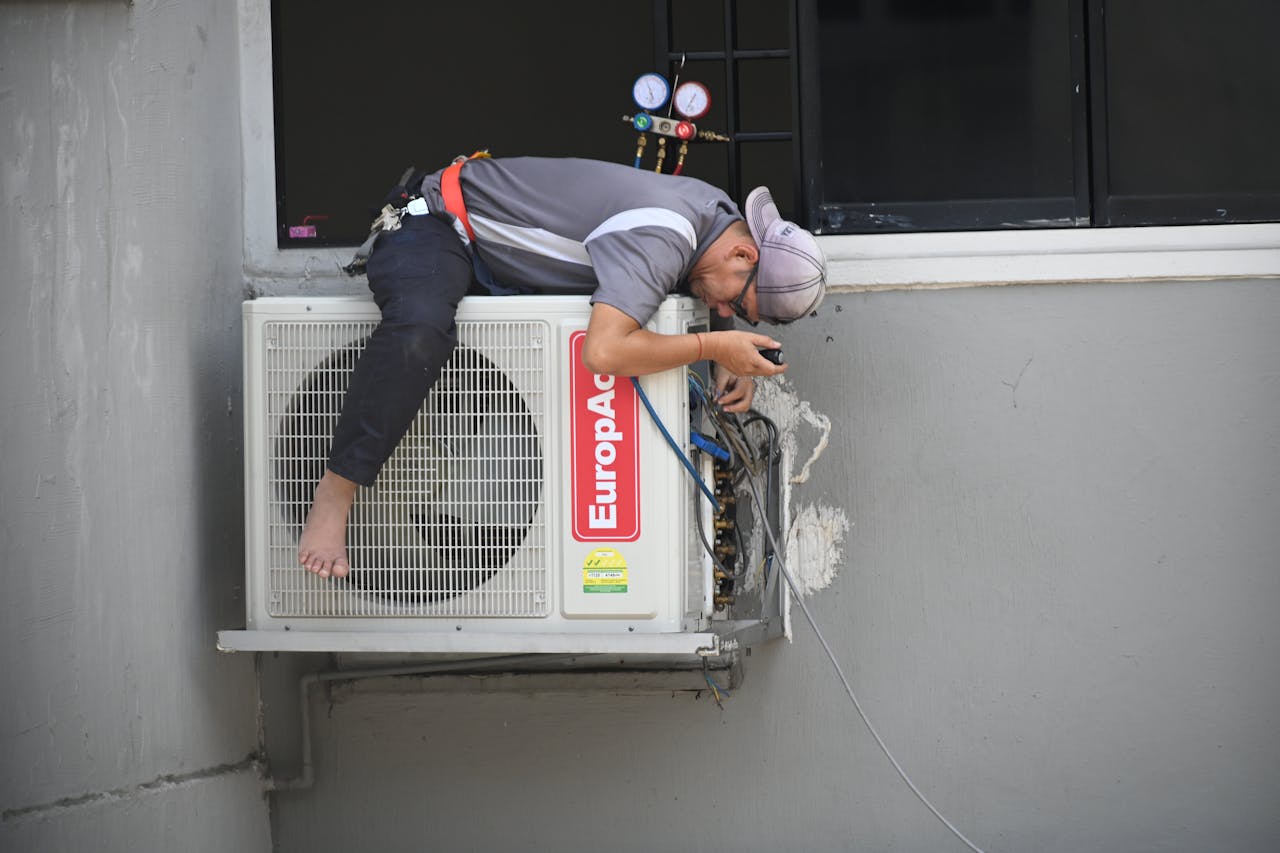Key Climate Control Considerations for Every Real Estate Owner
Whether residential or commercial, managing climate control is among the most essential aspects in maintaining a property. Real estate owners face unique challenges that can impact comfort, energy efficiency, and property value.
With rising energy costs and increasing awareness about environmental impact, incorporate effective climate control strategies. Smart investments can lead to a prolonged lifespan for your systems, lower energy bills, and increased property appeal. Understanding various climate control considerations can provide an excellent return on investment, which is essential for real estate owners to stay informed and proactive.

The Importance of Insulation
Proper insulation acts as a barrier against heat loss in winter and heat gain in summer for a more stable indoor temperature. The type of insulation used—whether it's fiberglass, foam, or cellulose—can impact a building's energy efficiency. Homeowners can save between 15% to 30% on energy bills just by improving their insulation. Evaluating the current insulation in your property and considering upgrades can yield both comfort and financial benefits.
Insulating attics, walls, and basements also prevents moisture issues in regions prone to high humidity or rainfall. Investing in quality insulation contributes to comfort and protects your property's structural integrity. Hire a professional to assess your existing insulation — they can provide insights into areas that need improvement or replacement.
Consulting with an HVAC Professional
HVAC professionals provide invaluable services that can optimize your climate control systems. Their expertise encompasses all aspects of HVAC installation and maintenance so that your systems run efficiently and effectively. With the increasing complexities of climate regulation, no owner should underestimate the benefits of professional consultation. To optimize climate control for your home, don't forget to call in an HVAC professional. An HVAC professional guarantees that your climate systems are installed to industry standards, but also identifies potential issues before they become significant problems.
Consider adding smart technology to your systems—many HVAC professionals now recommend high-efficiency units that reduce energy consumption. A good HVAC technician will integrate technology that monitors and regulates indoor conditions, adapting as needed for efficiency and comfort.
Energy-Efficient Windows and Doors
Installing energy-efficient windows can reduce the amount of heat lost in winter and prevent excessive heat gain in summer. Look for double or triple-pane windows equipped with gas fills and low-E coatings to improve performance. Upgrading windows can increase a home's comfort, reduce energy costs, and improve overall aesthetics.
Exterior doors should be well-insulated and fitted with proper weather stripping to prevent drafts. Testing for air leaks around windows and doors is a simple yet effective way to identify airflow issues. Owners might consider using caulk to seal gaps or replacing any worn or damaged seals. The impact of energy-efficient windows and doors extends beyond individual comfort—improved energy efficiency contributes to a more sustainable lifestyle and a lower carbon footprint.
Smart Home Technology Integration
Smart thermostats offer notable benefits and allow owners to optimize energy usage through programmable settings and remote control features. These devices learn user habits, adjusting temperatures automatically for increased comfort and efficiency. Smart sensors can detect when spaces are unoccupied and adjust heating and cooling systems accordingly. For those who prioritize energy savings, smart home systems often provide valuable insights into usage patterns and suggest adjustments for higher efficiency.
Homeowners can also integrate other devices, such as smart blinds, which can automatically open and close based on sunlight. While initial investment in smart technology may seem considerable, the potential reduction in energy costs and increase in property value can easily justify the expense.
Utilizing Renewable Energy Sources
Harnessing renewable energy is an attractive option for real estate owners seeking to increase climate control. Solar panels can reduce dependence on grid energy and lower monthly utility bills. Some regions even offer tax incentives that can offset initial installation costs.
Where applicable, wind energy generates electricity and potentially sells excess back to the grid. Take advantage of local incentives and grants to implement renewable systems. Investing in renewable resources contributes to independent energy management and positions your property as eco-friendly, an increasingly sought-after feature among buyers and renters. The move towards renewable energy is necessary for modern real estate owners.
Long-term Benefits and Investment Return
Implementing effective climate control measures may require an upfront investment, but the long-term advantages are undeniable. Increased energy efficiency typically translates to reduced utility bills, which can lead to savings of thousands over the lifetime of the home.
Properties equipped with modern climate control solutions tend to see a boost in resale value. Homebuyers are drawn to homes that offer energy-efficient features and advanced technologies, recognizing the long-term financial benefits. Consider this: homes with energy-efficient ratings sell for a premium compared to their less efficient counterparts. Beyond financial gain, these features contribute to a higher quality of life for occupants, improving comfort and health by providing better indoor air quality and temperature regulation.

Investing in climate control is about making a smart financial choice that can pay dividends for many years. By prioritizing these strategies, real estate owners can secure their investment against fluctuating energy costs and elevate rental or sale opportunities. Climate control is an essential aspect of real estate management that deserves careful consideration. With the right implementation of smart technologies and renewable energy sources, property owners can enjoy both savings and a commitment to sustainability.
Published 4/29/25